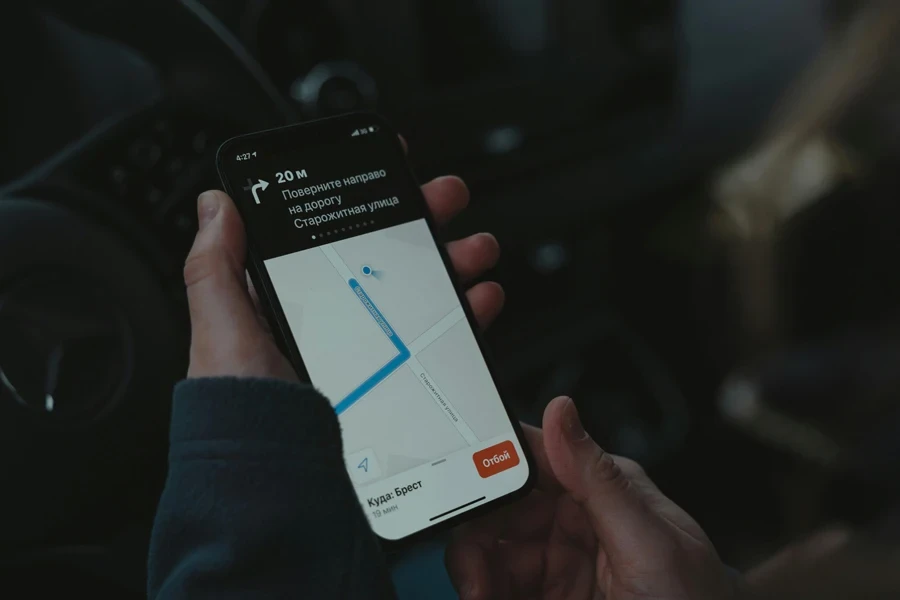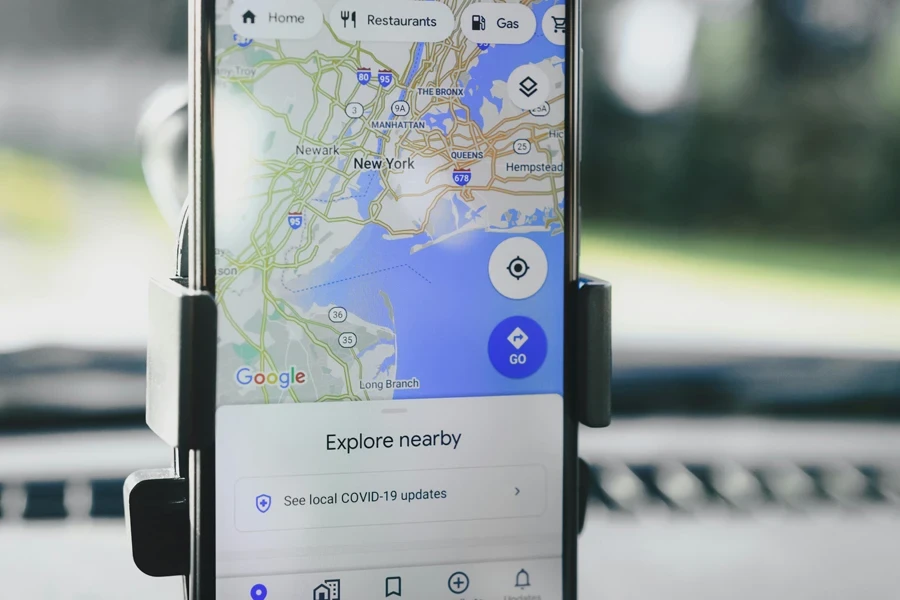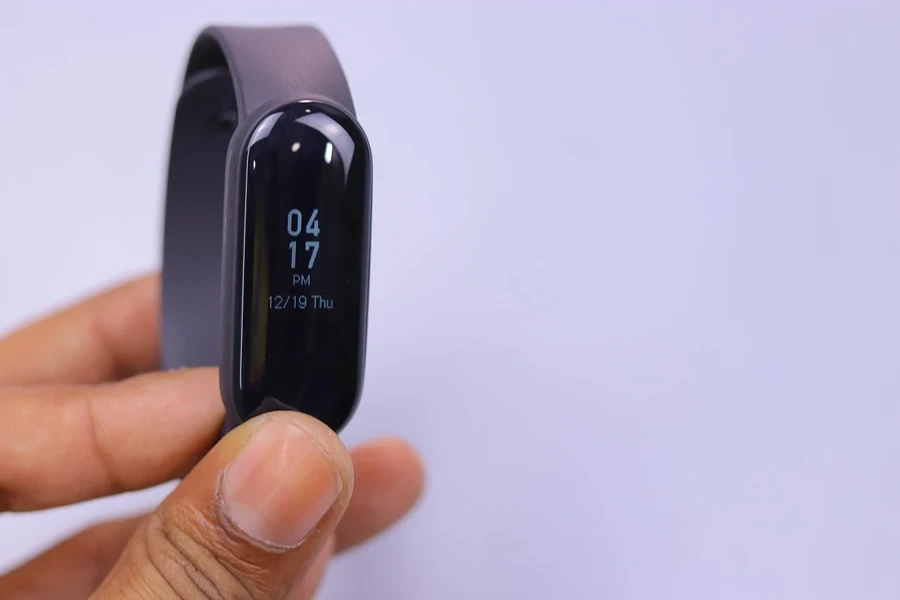Table of Contents
● Introduction
● Market overview
● Key design, technical, and material innovations
● Top-sellers driving market trends
● Conclusion
Introduction
GPS tracking devices have become indispensable in vehicle and asset management by providing users with tracking capabilities and improved security features. With the market expanding due to advancements in energy technology and integration with the Internet of Things (IoT), these tools are now more convenient and effective than ever. This article explores the trends in the market scope, examining significant improvements in design and technology while spotlighting top-selling items influencing the industry landscape in 2024. Given the industries’ demand, businesses and consumers must comprehend these advancements. Stay ahead by discovering what sets these GPS trackers apart in the market.

Market overview
The worldwide market for GPS trackers is seeing growth momentum as per Future Market Insights estimates, with an expected surge from $3.13 billion in 2024 to around $7.23 billion by 2034, driven by a compound annual growth rate of 8.7%. This growth is powered by the growing need for real-time tracking solutions across transportation logistics and asset management. Fleet management remains a leading use case in 2024, with 45.6% of the market share as companies look to improve efficiency and security. Additionally, there is a growing trend towards using GPS trackers, projected to account for 38.7% of the market, thanks to their versatility and simple implementation.
According to a report by Future Market Insights in 2023, China and the U.S. are projected to be the top players in the market. China is anticipated to capture a market share of 9.8%, while the U. S is expected to hold 4.3%. These regions are capitalizing on progress and the widespread integration of GPS trackers across different sectors. Specifically, the U. S market is witnessing growth due to the rising utilization of GPS technology in fields like recreational activities and aviation. In the European market scene, mostly in Germany, there’s an uptick as businesses prioritize adopting cutting-edge technology to cater to the increasing need for accuracy and dependability in logistics and transportation.

Key design, technical, and material innovations
Advancements in GPS tracking technology have greatly improved the functionality and availability of these devices. A major breakthrough has been the introduction of low-power GPS tracking, transforming how battery life is managed. In the past, conventional GPS trackers used up much power because they handled location calculations directly on the device. With the emergence of low-power technology, devices collect essential data and shift the processing workload to cloud-based systems. According to Pozyz, research findings state that this new technology can potentially increase the lifespan of GPS trackers by 10 years, which would significantly lessen the upkeep required and enhance their suitability for widespread use.
A significant new development is the advancement of tracking without the need for infrastructure to overcome the limitations of GPS technology within buildings where structures often obstruct satellite signals. To address this issue in settings where traditional GPS struggles due to signal blockages by buildings and structures that hinder satellite reception, contemporary GPS trackers now incorporate Wi-Fi and Bluetooth technologies. These trackers scan for Wi-Fi access points. Utilize cloud databases to pinpoint indoor locations with precision ranging from 10 to 40 meters. For situations necessitating accuracy levels, trackers equipped with Bluetooth technology can achieve locations within a range of 3 to 5 meters. This feature allows for indoor monitoring without requiring infrastructure setup. A significant advancement in logistics and inventory control, as described by PozyX.

Innovatively adding IoT-enabled sensors to GPS trackers has been a game changer, offering updates on the status of different assets that have never been seen in industries like pharmaceutical and food transportation. The sensors are designed meticulously to keep track of factors such as temperature changes and movements, ensuring that goods remain intact during transportation and providing information that was not accessible earlier. Pozyz reported that these sensors improve the functionality of GPS tracking devices by allowing for features such as detecting impacts and sending theft alerts. This enhances the utility of GPS-tracking devices in asset management.
Advancements in cost-saving tech, like the use of Narrowband IoT (NB-IoT), are playing a role in making GPS trackers more budget-friendly and widely available these days. NB IOT is a technology known for its power consumption and wide coverage range that has been incorporated into numerous GPS trackers. This integration has decreased the hardware prices and subscription fees for using the technology. Such cost reductions are paving the way for the acceptance of GPS tracking systems across industries that previously found them too expensive to implement. Businesses are finding it easier to use GPS trackers in numbers to improve their efficiency and security as prices drop further, according to Pozy.

Top-sellers driving market trends
In the 2024 market scene, GPS trackers are dominated by choices that meet various requirements with distinct offerings. The Bouncie GPS Car Tracker is a choice for many due to its ease of use and cost-effectiveness. It links up to the car’s OBD II port. Delivers live tracking information that gets updated every 15 seconds. This monitoring tool is widely appreciated for its setup, user-friendly interface, and budget subscription plan, distinguishing it from similar products. Per a report on Motor1.com, Bouncie stands out for its capability to provide location tracking and valuable driving information at a price point, making it a top pick for regular users.
The LandAirSea 54 GPS Tracker has gained a reputation for its top-notch precision. It is well-suited for both business and personal tracking requirements. Its magnetic and waterproof casing enables attachment to vehicles and other items for tracking purposes. It provides real-time tracking updates based on the chosen subscription plan, often every three seconds. Due to its features and durable construction, it is a favored option for individuals who need thorough tracking capabilities in different settings.
The BrickHouse Security Spark Nano 7 catches the eye with its cutting-edge tracking capabilities, like geofencing and thorough reporting features. This compact tracker proves to be highly efficient in personal and professional environments. It allows for customized tracking intervals and can issue notifications when vehicles cross into or out of set areas, making it perfect for overseeing personal cars and business fleets. Motor1.com praises its ability to offer in-depth information and reliable performance under certain conditions.

The Tracki 4G Mini GPS Tracker receives acclaim for its versatility. It can be utilized to monitor vehicles and keep tabs on personal belongings and pets. This tracker offers a range of choices facilitating effortless placement on or inside items. Its regular updates and geofencing features make it a flexible tool catering to various tracking requirements. As reported by Motor Reviews. Trackis’s compact design and versatile functionality have made it popular for individuals looking for tracking options.
The Vyncs GPS Tracker for Vehicles stands out for its top-notch features. Its range of data services caters well to fleet management needs. By linking to the vehicle’s OBD II port, Vync provides a plethora of information beyond location tracking, such as insights into driver behavior analysis reports regarding vehicle health and monitoring fuel efficiency. With its data gathering and reporting functions, Vync proves to be an asset for companies seeking to streamline their fleet operations, as highlighted in the detailed review by Motor1.com.

Conclusion
The market for GPS trackers is changing quickly due to advancements in energy technology and indoor tracking without the need for infrastructure or IoT integration. Devices like the Bouncie GPS Car Tracker, LandAirSea 54, and Vyncs GPS Tracker have taken the lead by offering designs that are user-friendly, highly accurate, and advanced data capabilities. As GPS technology progresses, its role in improving vehicle security and asset management will expand, enabling businesses and individuals to access more dependable and sophisticated tracking solutions.




